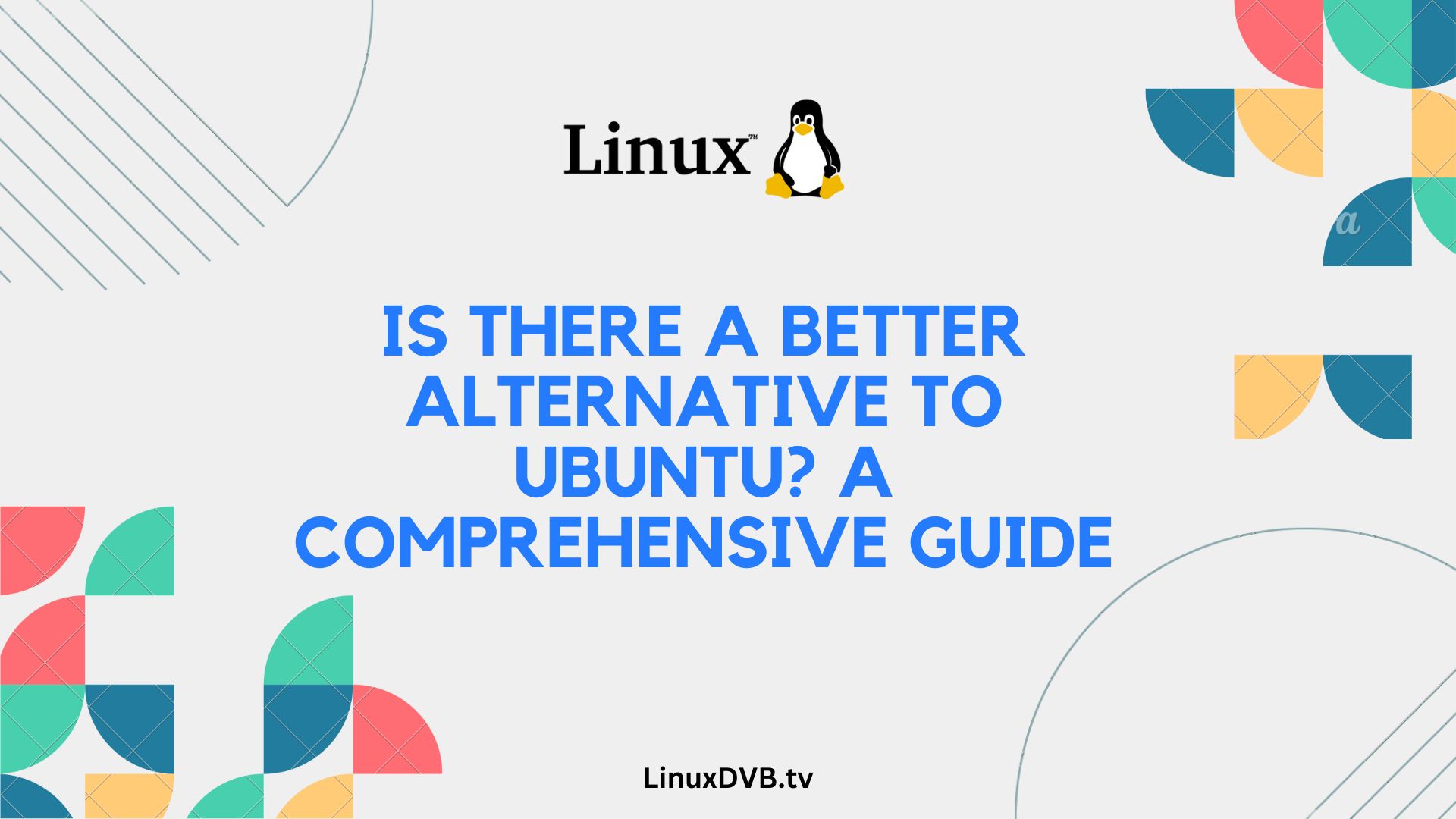Are you a Linux enthusiast or someone looking to switch to a new operating system? If you’re asking the question, “Is there a better alternative to Ubuntu?” you’ve come to the right place. In this comprehensive guide, we’ll explore various Linux distributions that can serve as viable alternatives to Ubuntu. We’ll dive deep into their features, performance, and user-friendliness, helping you make an informed decision about which Linux distribution suits your needs best.
Table of Contents
Exploring Ubuntu
Before we delve into alternative Linux distributions, let’s briefly examine Ubuntu to understand why some users might seek alternatives.
Ubuntu, one of the most popular Linux distributions, is known for its user-friendly interface and extensive software repository. However, it’s essential to consider your specific requirements and preferences to determine if there’s a better option out there for you.
The Contenders: Alternative Linux Distributions
1. Linux Mint: A Familiar Experience
Looking for an Ubuntu alternative that offers a familiar interface? Linux Mint might be the answer. This distribution provides an intuitive desktop environment and a robust software manager.
2. Fedora: Cutting-Edge and Innovative
If you’re more interested in the bleeding edge of technology, Fedora is known for its commitment to using the latest software and innovations. It’s an excellent choice for developers and enthusiasts.
3. Debian: Stability and Reliability
Debian focuses on stability and reliability. If you prefer a rock-solid foundation for your Linux system, Debian might be your best bet.
4. Manjaro: User-Friendly Arch Linux
Arch Linux can be intimidating for newcomers, but Manjaro simplifies the Arch experience, making it accessible to a broader audience.
5. Zorin OS: A Windows-Like Experience
If you’re transitioning from Windows and want a Linux distribution with a familiar look and feel, Zorin OS mimics the Windows interface seamlessly.
6. Pop!_OS: Built for Gamers and Creators
Designed by System76, Pop!_OS caters to gamers and content creators with its excellent hardware support and performance optimizations.
7. Solus: A Rolling-Release Delight
Solus takes a unique approach as a rolling-release distribution, ensuring you always have the latest software without sacrificing stability.
8. Elementary OS: Simplicity at Its Best
Elementary OS is all about minimalism and simplicity. If you appreciate a clean and straightforward design, this might be your ideal choice.
9. OpenSUSE: Versatile and Robust
OpenSUSE is known for its versatility, offering multiple desktop environments and advanced system management tools.
Is there a better alternative to Ubuntu?
Now that we’ve introduced you to some compelling alternatives let’s explore this question more deeply.
User Experience: Finding the Right Fit
When considering a Linux distribution, your experience matters most. Each of the distributions mentioned above caters to different user preferences. It’s essential to try a few out and see which one aligns with your workflow and style.
Performance and Hardware Compatibility
Performance can vary significantly between Linux distributions. Some may be optimized for older hardware, while others demand powerful systems. Consider your computer’s specs before making a decision.
Software Availability
Ubuntu boasts a vast software repository, but other distributions may have specific software that isn’t readily available on Ubuntu. Ensure that the software you rely on is accessible on your chosen distribution.
Community and Support
Strong community support can make a significant difference in your Linux journey. Research the community around your chosen distribution to ensure you can find help when needed.
Frequently Asked Questions
Can I switch from Ubuntu to another distribution without losing my data?
Absolutely. You can back up your data and configuration files, then perform a clean installation of the new distribution. Afterward, you can restore your data.
Do these alternatives receive regular updates and security patches?
Yes, most Linux distributions mentioned in this guide receive regular updates and security patches. It’s crucial to keep your system up to date for security and stability.
Which distribution is best for beginners?
Linux Mint and Zorin OS are excellent choices for beginners due to their user-friendly interfaces.
Can I dual-boot Ubuntu with another Linux distribution?
Yes, you can dual-boot Ubuntu with another Linux distribution by partitioning your hard drive and installing both systems on separate partitions.
Are these Linux distributions free to use?
Yes, all the mentioned Linux distributions are open-source and free to use.
How do I choose the right desktop environment for my Linux distribution?
The desktop environment largely depends on your personal preference. Try a few different ones to see which suits you best.
Is there a better alternative to Ubuntu?
Yes, there are several alternative Linux distributions, such as Fedora, CentOS, and Linux Mint, depending on your needs and preferences.What is the alternative to Ubuntu Debian?
Debian itself is an alternative to Ubuntu, as Ubuntu is based on Debian. Other Debian-based distributions include Linux Mint and MX Linux.Conclusion
In the world of Linux, there is no shortage of alternatives to Ubuntu. The key is to identify your unique needs and preferences, explore the options, and choose the distribution that aligns perfectly with your goals. Remember that the Linux community is vast and welcoming, so don’t hesitate to seek guidance from fellow enthusiasts on your journey.
Explore the Linux landscape, experiment with different distributions, and find the one that makes you say, “Yes, there is a better alternative to Ubuntu, and I’ve found it!”

